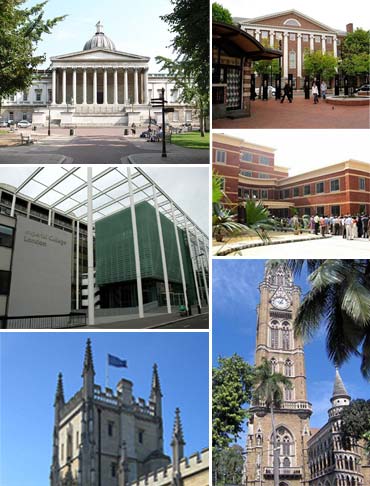
As more young Indians look at pursuing education in foreign universities, Careers 360 gives you a comprehensive guide on what you can expect at the ten most popular study abroad destinations in the world.
Airtel is now a visible face in most of Africa. Tata owns Jaguar and Tetley. The biggest consumer durable company in India is a Korean MNC, LG Electronics. Most Indian IT giants are predominantly owned by private equity players located in obscure islands. The world as we know is changing drastically. MTV is as much an Indian product as it is American. Even as we integrate at a fast pace there is still tremendous resistance to migration.
While the foreign universities are opening up their doors for both intellectual as well as financial reasons, their governments are still less forthcoming. Immigration issues at times deter free movement of students. Racial tensions do exist like the recent one's in Australia. Cost is a deterring factor. Despite all this, a foreign degree still holds allure to innumerable students.
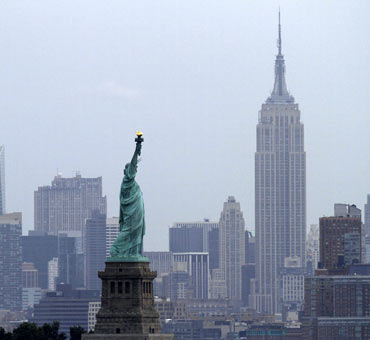
1. Study in USA: Best infrastructure, academic ambience
Within its fold of over 1,500 universities it has not only world beaters like Harvard and MIT, but over 100-odd good-value-for-money education providers.
Academic cycle:
Application begins: 12 to 18 months before you plan to begin studying in the US. Fill out the application form between August to October
Last date for submission: End of February
When Shantanu Narayan, an IIT pass-out wanted to pursue nanobiotechnology, his only choice was USA. It offers the best both in terms of infrastructure and academic ambience, he asserts. Be it nano technology, Business and Management, Engineering, Sciences or Fine Arts, the country remains the only abode for the best.
The advantage of USA is that, within its fold of over 1,500 universities it has not only world beaters like Harvard and MIT, but over 100-odd good-value-for-money education providers.
One of the biggest attractions that US offers is the job opportunities. Housing most of the high technology companies, US has tremendous need for postgraduates.
University of southern California, University of Texas, Ohio State Univ, University of Illinois are some of the places with large concentration of Indian students. Some even have home-grown cricket grounds.
Costs are quite high, but aid is available, especially at the doctoral stage. Some Master's programmes also have good fellowships. Working while studying is not easy, since you could work only within campus. Some courses do permit Curricular Practical Training (CPT). But after Tri Valley University debacle (the university was shut down, and students were deported for visa violations. One must be very careful. Despite all these hiccups USA still remains the land of opportunities and an education there is worth all the effort.
Visa guidelines
NEXT: UK
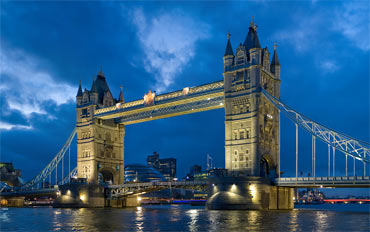
2. Study in UK: Finish your Master's in one year
Next to USA, the maximum number of fellowships for Indian students are for the UK.
Academic cycle
Rohini Chopra swears that during her course in Management Psychology at University of Nottingham, UK what she learnt outside class was something that makes her see things in a different light. The biggest advantage of studying in the UK has been the one-year Master's programme as compared to the two-years' Master's in countries like the USA and Germany.
In addition, it boasts of the legendary Oxford and Cambridge Universities that have managed to catch the fancy of the Indian student population for decades.
Although the high tuition fees and cost of living have deterred students from applying to UK universities, many of them do offer trust and college-level bursaries and next to the USA, maximum number of fellowships for India is in the UK. It is also easy to get part-time work to fund your expenses there, though one can only work within the university.
With respect to food habits and social atmosphere, the country and streets are dotted with Indian, Pakistani and Sri Lankan restaurants.
The unpredictable weather (especially rains) might at times create havoc. So it is advisable to carry an umbrella or raincoat, wherever you go. With the change in Visa application process based on points system, it might have become a tad difficult for aspirants to seek UK universities.
Visa guidelines
NEXT: Australia
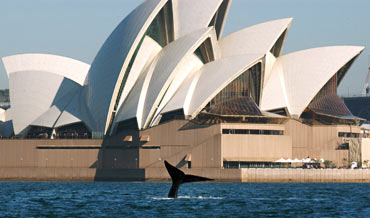
3. Study in Australia: Racial attacks haven't deterred students
Indian students head of Oz for courses in Hospitality, Management and Commerce, IT and Engineering.
Academic cycle
Application begins: May 2011 for Feb 2012 intake
Last date for submission: End of October
Admission results: Between November to January. Universities notify whether you have been selected or not
Visa cycle: Begins in October and ends in December/January
Sessions begins: February (Some universities now have mid-term intake in September as well)
Sukun Chopra affirms she has faced no racial attacks in her one-and-a-half-years in Sydney as a student of Psychology at University of New South Wales. She strongly believes that the country is pretty safe, most of the attacks have been carried out by people from other nationalities residing in the country and like in any other international city there might be a few pockets that are unsafe.
Over the last few years, the country bore the brunt of being called racially discriminating, leading to doubts whether it is a suitable destination for Indian students. However, it has not managed to deter a large number of Indians who have chosen the country to do courses in Hospitality, Management and Commerce, IT and Engineering.
Australian National University, Melbourne University, Monash University and University of New South Wales continue to attract Indian students.
Interestingly, the Australian government does not rank its institutions and universities; the student needs to select them based on parameters like balance between theoretical and practical approach, experience of faculty and facilities offered. It is also very important to do a through check of the credentials of the institution.
The Australian academic year runs from February to November and has a long break in December. So the entire planning must begin in May-June of the previous year. Another highlight of the Australian system is that it has a very strong vocational education system. The curricular framework seamlessly moves between vocational and higher education streams.
Visa guidelines

NEXT: Canada
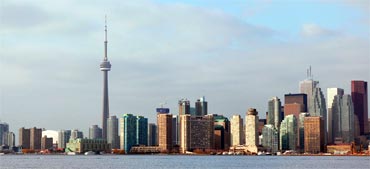
4. Study in Canada: A hub for vocational courses
Movement between streams is easy as Canadian education has a very structured national curricular framework.
Academic cycle
Application begins: 15 to 18 months prior to beginning of admission
Sessions begins: September (Often, this winter session is split into two terms running September to December and January to April. Various forms of summer studies may be offered from May to August)
Visa cycle: Takes 3 to 4 weeks to process the Visa. Apply for it at least two months prior to start of semester (around July)
More students go to Canada to study vocational courses rather than pure academic or professional courses. These courses are popular as the students have immediate employment on their mind. The country does offer immense scope for working owing to its low population density. Thus, in Canada there are more takers for Postgraduate diploma in areas like Business Management, Engineering, Media, Hospitality and Computer Science among the Indian student population.
University of Toronto, McGill University and University of British Columbia remain popular among those who wish to pursue academic courses.
There is equally large demand for vocational colleges like Humber College, Centennial College and Fanshawe College. Since there exists a very structured national curricular framework, movement is easy between streams. The country is believed to be extremely picturesque and clean.
As a result, most Universities and colleges have large sprawling campuses and provide accommodation to the students. The Canadian winter is extremely harsh and ruthless. Indian woollens usually do not serve the purpose.
As a result, it is advisable to buy the woollens from the country. Students in their final semester should start looking for jobs as the postgraduate work visa takes 90 days to process. However, now with the two-years of degree programme, the student can obtain three years of work permit to work anywhere.
Visa guidelines
NEXT: France

NEXT: Canada
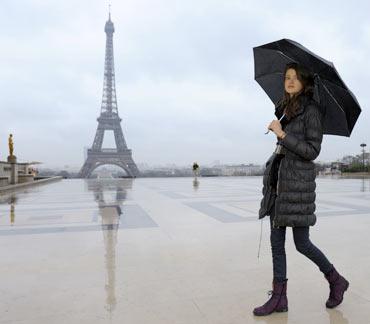
5. Study in France: Premier destination for Art & Design studies
France also receives students who intend to pursue Fashion and Luxury, Management, Social Sciences and Pure Sciences.
Academic cycle
Sessions begins: September
Visa cycle: Best to apply for visa three months prior to start of semester
Application begins: February/March
Last date for submission: Before June
After completing her degree from College of Arts, Delhi, Ritika Bose was trying to figure out from which country she should do her PG course in commercial art. After much deliberation and a chat with consultants, she chose a university in France for her course.
France receives a large number of Indian students who intend to specialise in Art and Design along with those planning to study Fashion and Luxury, Management, Social Sciences and Pure Sciences.
University of Angers, Grenoble Graduate School of Business, ESSEC institutes, ESCP-EAP remain popular choices among the Indian students.
While preparing for the Visa interview, be prepared to answer questions on your study project, research options, their future plans, motivation to choose France and family background. The country gives a six-month extension on student visa to look for a job after completion of course.
Visa guidelines
Visa interview
NEXT: Germany
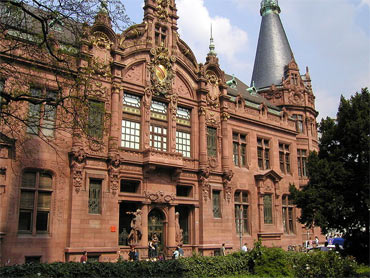
6. Study in Germany: Known for its precision engineering
About 300 international degree programmes are taught in the federal nation, entirely or partly in English, mostly in the realm of engineering and pure sciences.
Academic cycle
Sessions begins: October (winter semester), April (summer semester)
Application deadlines: January 15 for summer semester and July 15 for winter semester
Visa cycle: Best to apply three months before the day of travel
Working with a major car manufacturer in Gurgaon, Ayaan Ghosh decided to apply for his MTech at Technical University of Berlin, Germany. Known for its precision engineering, the country gets a fair share of Indian students for studying Engineering, Mathematics, Natural Science and even Social and Cultural Sciences.
University of Stuttgart, University of Regensburg, Technical University of Berlin and University of Duisburg-Essen remain most sought after Universities in the country. In German educational institutions, both professors and students are involved in research right at the beginning of the course.
There are about 300 international degree programmes which are entirely or partly taught in English especially in the realm of engineering and pure sciences. Germany is an expensive country but most university towns will have second-hand shops selling furniture, equipment and computers and most other utility items.
So, one must just rummage through these shops, haggle and attain the best bargain. Once you arrive in the country, do register at the Resident Registration Bureau and the Office of Foreigner's Affairs (to prove that you can bear financial cost of your studies).
Visa guidelines
NEXT: Italy

7. Study in Italy: The Mecca of fashion
The Italian Ministry of Foreign Affairs offers many scholarships to study in this nation.
Academic cycle
Session begins: September
Application deadline: Four months before the session starts
Visa cycle: Best to apply three months prior to date of departure
Italy stands as fashion's Mecca in the modern world and gets a decent number of Indian students who intend to pursue fashion and design, although there are others who come here to study Engineering and Business Administration.
Italian universities have been intellectually diverse and the world's oldest extant university still stands quite tall at Bologna.
However, as Surender Chauhan would like to believe, the country is innately stylish and it kind of rubs on you. Surender studied at Polytechnic of Milan.
Other places having strong Indian presence include University of Venice, John Cabot University, University of Bologna and Polytechnic of Turin. To make the country a viable option among Indian students, the Italian Ministry of Foreign Affairs offers scholarships.
However, there were only 450-500 applicants last year. With many new Italian universities trying to offer courses in English, the Indian student population is bound to increase.
Visa guidelines
NEXT: Singapore

8. Study in Singapore: Just four hours away!
You do not require a work permit in Singapore but can work a maximum of 16 hours a week.
Academic cycle
Session begins: August
Application deadline: March
Visa cycle: At least two months prior to the commencement of your course and not before 6 months
Vrushali Mehta got through INSEAD and was proud of her achievement. However, she was offered a place in INSEAD's satellite campus at Singapore. Her parents were overjoyed. Singapore is four hours away from India and has emerged as one of the important destination for Indian students.
Numerous Indian students go there ever year to study Management, Engineering, IT and Tourism courses. Apart from INSEAD, there are other popular private educational campuses like those of SP Jain Centre of Management and SIM University.
In addition, National University of Singapore (NUS), Nanyang Technological University and Singapore Management University have emerged as top choices of Indian students. Singapore has lower cost of living than most developed countries. Students do not require a work-permit but can work a maximum of 16 hours a week. The institute usually provides assistance to students to apply for Student Pass (visa).
Visa guidelines
NEXT: Switzerland
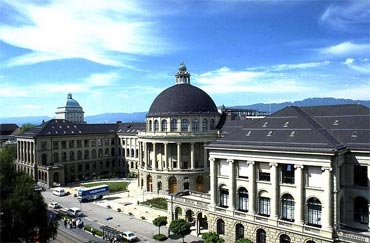
9. Study in Switzerland: Preferred for Hospitality Services
All doctoral degree-granting research universities in Switzerland are very demanding in time and require dedication, so no time to work along with studies.
Academic cycle
Session begins: September
Application deadline: Four months before the session starts
Visa cycle: At least 8 to 10 weeks prior to date of departure
About 700 students were enrolled in Swiss Universities for Bachelor's, Master's and research programmes in December 2010. Switzerland has been a preferred destination for students to pursue their education in hospitality services.
Biotechnology, Material Science and Nanotechnology are also quite popular options. Switzerland has 12 doctoral degree-granting research universities offering a wide-range of educational opportunities to international students.
Swiss educational fees are comparatively lower as compared to other European nations and the higher education is publicly funded. In fact, all the doctoral degree-granting research universities are also publicly funded.
University of Geneva, University of Bern, University of St. Gallen and University of Lausanne are popular with Indian students and are very demanding in time and require dedication. As a result, there is not much time for working along with studies.
Visa guidelines
NEXT: New Zealand
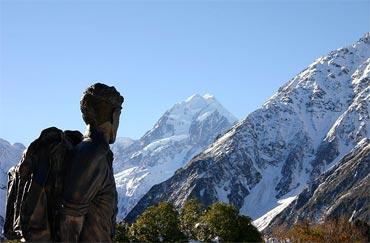
10. Study in New Zealand: Easy on your pocket
Number of students applying to New Zealand for undergraduate courses is on a rise as higher education here remains inexpensive as compared to UK, USA.
Academic cycle
Session begins: September/October
Application deadline: Four months before the session starts
Visa cycle: Best to begin 8 to 10 months prior to commencement of course
According to New Zealand's Ministry of Education, there were about 7,000 Indian students in the country in 2009 and it rose to about 8,000 in 2010. For a nation located far away, this is quite a large number.
New Zealand remains an immensely accessible country for immigration purposes. Over the last three years, there has been a steady rise in the number of students applying to New Zealand for undergraduate courses.
Higher education remains inexpensive as compared to UK, USA. Indian students pursue management and Commerce, Medicine, IT and Pure Sciences in the country. University of Auckland, University of Canterbury, Lincoln University and University of Waikato are the most popular choices.
The duration of student visa is initially a year and extended for the duration of the course.
Students can avail of a year's job search visa after completion of course and get a two-year work permit if they manage to get a job in their area of study. Located in the southern hemisphere, the weather conditions are contrary to India. The winter lasts from June to August while January and February are the warmest months. With various recreational options offered to students, the country is a haven for those who love adventure sports.
Visa guidelines